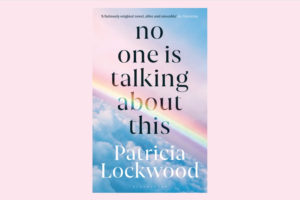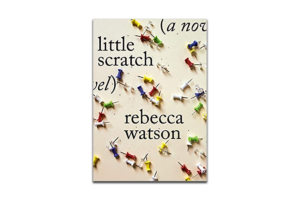While struggling to finish her second novel, British author Olivia Sudjic wrote a book-length essay about anxiety. ‘Anxiety is one of the few occupational hazards for a novelist,’ she writes, describing the loneliness of writing a novel and then the feelings of exposure once it’s published. Anxiety is also the dominant theme of her latest novel, Asylum Road, a story about trauma, survivor’s guilt and Brexit-era xenophobia.
Asylum Road follows Anya, who escaped the siege of Sarajevo as a child in the 1990s. She is now an outwardly assimilated PhD student in post-Brexit referendum Britain. Despite their deteriorating relationship, Anya’s boyfriend Luke proposes and she accepts. They visit his parents, ‘Leave’-voting Cornish nationalists who are outwardly polite but make Anya feel like an outsider. Then, the couple travels to Sarajevo to visit Anya’s equally unwelcoming family. For years, the family have pretended that they are still living through the siege, for the sake of Anya’s dementia-suffering mother. She mistakes Luke for a CNN journalist covering the Bosnian war and nobody corrects her.
“I had read the right books, bought thrifted designer clothes, gained several degrees at elite institutions and, in Luke’s flat, arranged an elegant mise-en-scène that in fact held no emotional resonance.“
Anya takes pride in playing the role of a model immigrant, having learned the language, gained Oxbridge degrees and found a nice English boyfriend. However, during a flight to Croatia, she loses her phone and PhD notebook, and her sense of identity begins to crumble. At one point, the first-person narration shifts into third-person and we watch Anya numbly watch herself, as if in birds-eye view, as she becomes increasingly self-destructive.
In the restrained, dread-inducing prose of Asylum Road, Sudjic has eliminated everything superfluous. There are no unnecessary characters or sub-plots. Peripheral characters feel hazy and deliberately underdeveloped, increasing the intense focus on Anya. There are no quotation marks or speech markers which blurs the boundaries between Anya’s speech and thoughts. This sometimes makes it unclear whether she is speaking aloud or thinking. Sudjic uses this to make the narrative feel claustrophobic – there’s no escape from Anya’s anxious mind.
“She’d blinked at me kindly and said it must be sad when your country no longer exists, then returned to pulverising her asparagus.“
Sudjic’s style has matured since her debut novel, Sympathy (2017), whose protagonist becomes obsessed with another woman’s Instagram account. Reading Sympathy feels like scrolling through Instagram, seeing a colourful mess of flashbacks, conversations and news stories flicker in front of your eyes. It’s sometimes hard to follow Sympathy’s non-linear narrative; it jumps suddenly between memories and asides as though determined by an algorithm beyond human comprehension.
Asylum Road, in contrast, is more precise in its mostly linear plotting. What it loses in narrative complexity, it gains in a cold, ever-growing sense of dread that lurks beneath every sentence. If Sympathy felt like your Instagram feed, Asylum Road feels like doomscrolling on Twitter while the world falls apart around you, refreshing the page and waiting for good news that never arrives.
Asylum Road is published by Bloomsbury.
If you purchase books linked on Safe and Sound, we may earn a commission from Bookshop.org, whose fees support independent bookshops.


